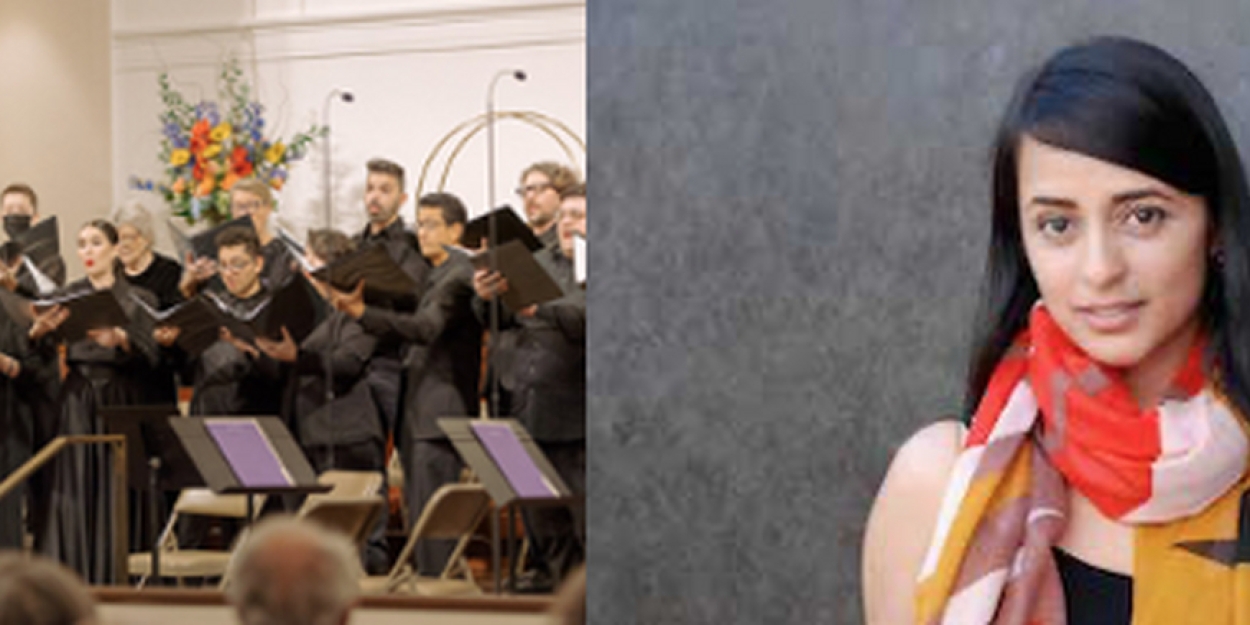Musica Viva NY to Present Concert Featuring Hindustani-Western Choral Music
The concert will take place on December 8.

New York City's leading chamber choir, Musica Viva NY, will kickstart the holiday season with THIS LOVE BETWEEN US, a one-night only concert capturing the awe and magnificence of our humanity on Sunday, December 8, 2024, at 5:00 p.m., at Manhattan's All Souls NYC. Led by the choir's intrepid Artistic Director/Conductor Alejandro Hernandez-Valdez, Musica Viva NY will be joined by a baroque orchestra, sitar and tabla players, and guest vocalists. Reena Esmail's beautiful This Love Between Us: Prayers for Unity and Bach's brilliant Magnificat written for Christmas Day make an interesting pairing, juxtaposing the familiar and the unfamiliar, the past and the present, and a young Indian-American composer and a venerated German master.
Celebrating a decade at the helm, Alejandro curates a program of works that are personally meaningful to him while showcasing the diversity that has been a hallmark of Musica Viva NY for the past 10 years. "Pairing Bach with a modern-day female composer of color is Musica Viva NY's way of making classical music as relevant as possible," explains Alejandro. "We hope to create a space in which audience members can find themselves reflected in the music they hear."
Indian-American composer Reena Esmail (b. 1983) is known for fusing elements of both Hindustani and classical Western music into sweeping, passionate compositions. Drawing on her South Asian roots, Esmail-who has worked with the Kronos Quartet, Albany Symphony, and Chicago Sinfonietta, among others-creates choral and symphonic pieces that have been hailed as compelling, exhilarating, memorable, and altogether original. Her Western-style harmonic structures are heard in This Love Between Us: Prayers for Unity, her 2016 choral work that Opera News described as "a powerful work of music." In seven movements Esmail juxtaposes the words of seven major religious traditions of India (Buddhism, Sikhism, Christianity, Zoroastrianism, Hinduism, Jainism and Islam), and specifically their respective approaches to the topic of unity, pulled straight from canonical religious writings or poems and set simultaneously in English and in their original languages. Musically, each movement unites Indian and Western classical styles, running the continuum from the Christian movement, which is rooted firmly in a baroque style, to the Zoroastrian movement, which is a Hindustani vilambit bandish. Esmail expounds in her program notes: "Even more than uniting musical practices, this piece unites people from two different musical traditions: a sitar and tabla join the choir and baroque orchestra. Each of the musicians is asked to keep one hand firmly rooted in their own tradition and training, while reaching the other hand outward to greet another musical culture."
Through the course of almost half a century, J.S. Bach wrote sacred music for virtually every kind of occasion his faith called for. And among the hundreds of cantatas, the Passions, the masses, and the oratorios, Magnificat was Bach's most elaborate sacred work to date. The Magnificat is the first large choral work that Bach composed after his appointment in Leipzig in the spring of 1723. The text comes from the "Song of Mary," a rich statement of purpose and faith from the Gospel of Luke, and is about the visit made by Mary to her cousin Elisabeth, who was also pregnant. It was first performed on Christmas Day 1723. Musica Viva NY performs Bach's revised version from 1733 featuring transverse flutes and two oboes.
Ticketing + Program Information:
Sunday, December 8, 2024, at 5:00 p.m. (pre-concert talk at 4:00 p.m.)
All Souls NYC, 1157 Lexington Avenue, New York City, Subways: 6 to 77th St or 4/5/6 to 86th St
Tickets: $50 ($30 for students) are available from MusicaViva.org.
Performers:
Musica Viva NY choir
Alejandro Hernandez-Valdez, artistic director and conductor
TBA, guest vocalists
TBA, sitar and tabla
Baroque orchestra
Program:
This Love Between Us: Prayers for Unity (2016) by Reena Esmail
Magnificat BWV 243 (1723) by J.S. Bach
Videos
